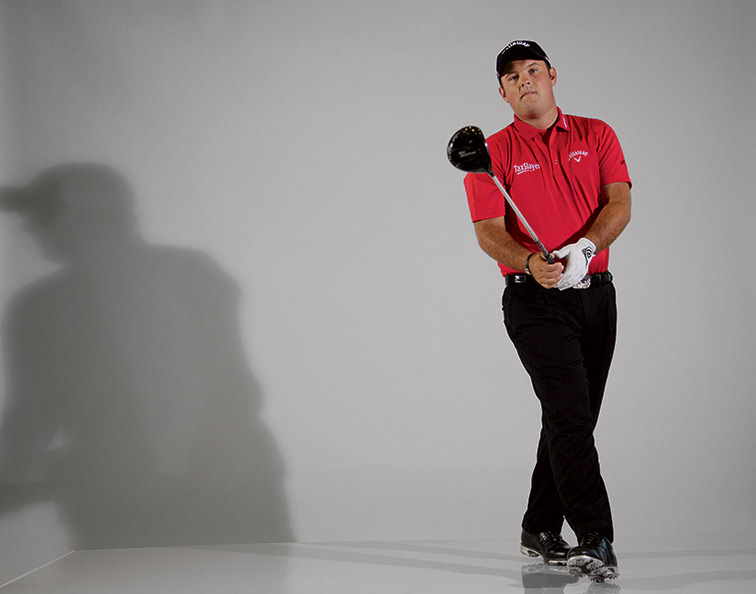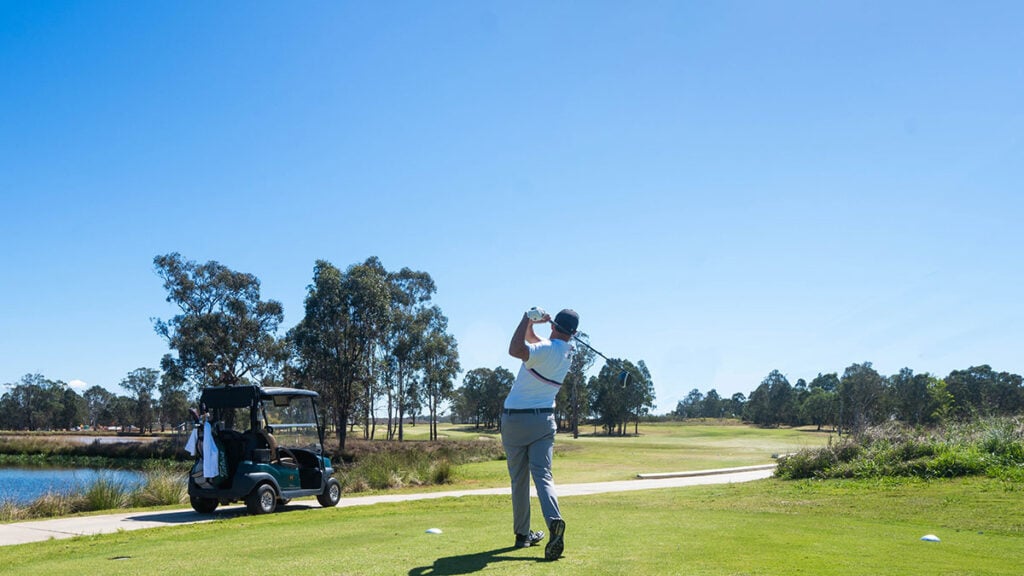Driving the ball well in match play is far more important than most golfers think.
Putting, of course, is huge – it’s about 40 per cent of all strokes – and iron play can be a key factor, too. But it all begins with the driver. For example, at the 2014 Ryder Cup I came to the final hole all square in my singles match against Henrik Stenson. I hit one of the best 3-irons of my life to set up a winning birdie, but it was an accurate tee shot that allowed that to happen.
If you’re consistently in the fairway, it puts tremendous pressure on your opponents. It sends a message that you aren’t going to make mistakes, which can affect their morale and tempt them to take chances they wouldn’t ordinarily take. On the flip side, if you’re driving it crooked, you’re doomed. You’ll miss greens, and even if your short game is spectacular, those sloppy tee shots will catch up with you.
Being a good driver in match play means having a few different shots in your bag to fit the holes and situations you’ll face. I’ll show you how to hit three types of drives that I rely on. They’ll make you more versatile off the tee – and a winner in your next match.
The Slinger
Control Ball Flight with a Piercing Draw
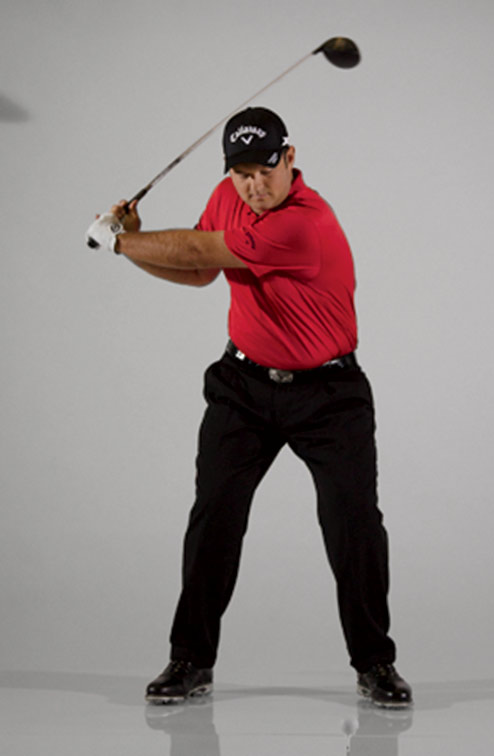
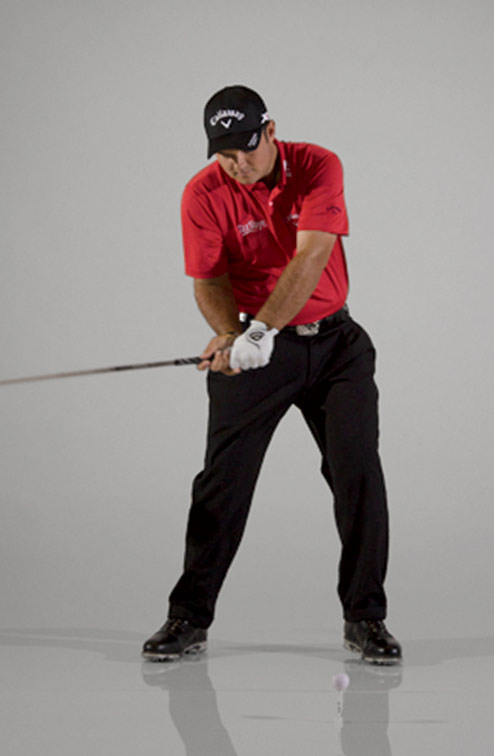
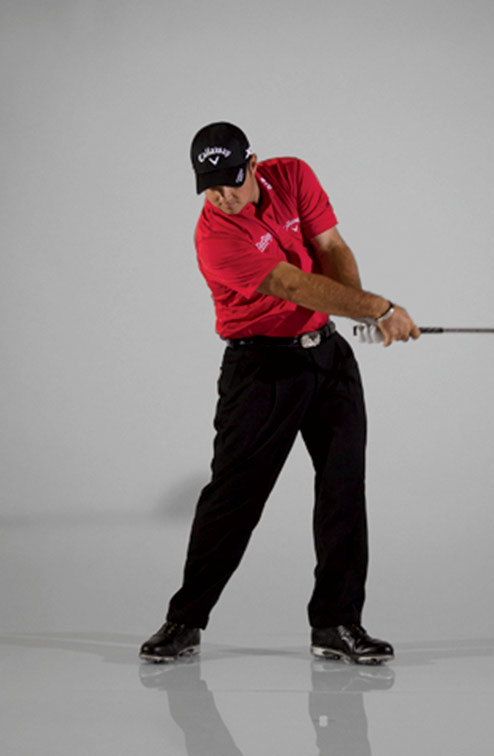
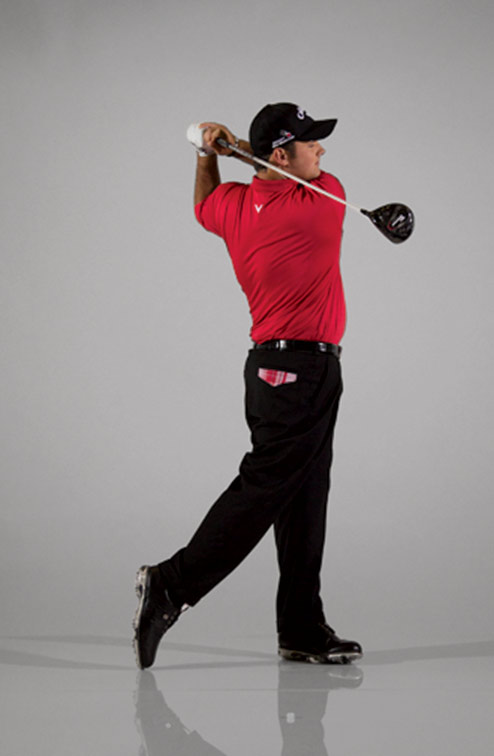
When I need a control shot, like in strong winds, I want to keep the ball low and let it run out hard. The Slinger is a drawing shot that’s sneaky long and a lot of fun to hit. I start by aligning my feet and shoulders well to the right – sometimes 30m – and gripping the club softly to free up my hands. After swinging back with plenty of wrist hinge, I sling the club down along my stance line, rotating my hands and the clubface aggressively. This closes the face, sending the ball on a low trajectory with a roundhouse draw.
The High Bomb
Grab 20 Extra Metres When You Need It
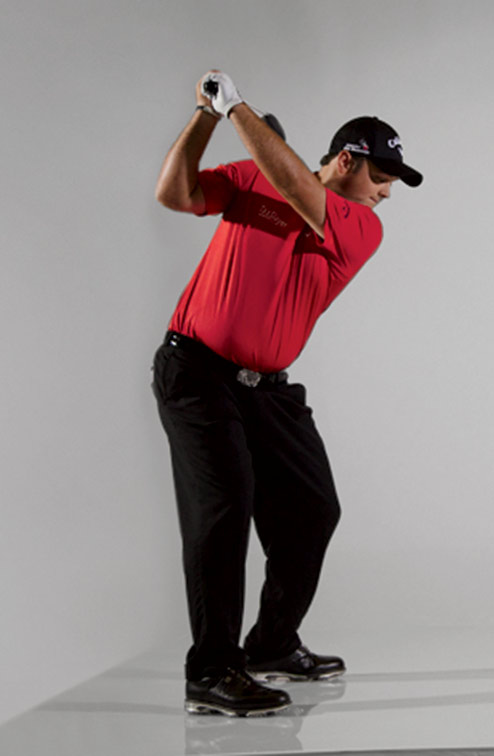
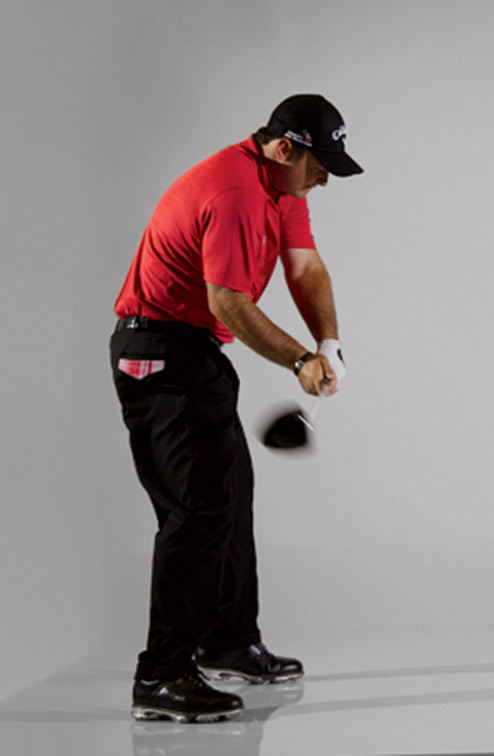
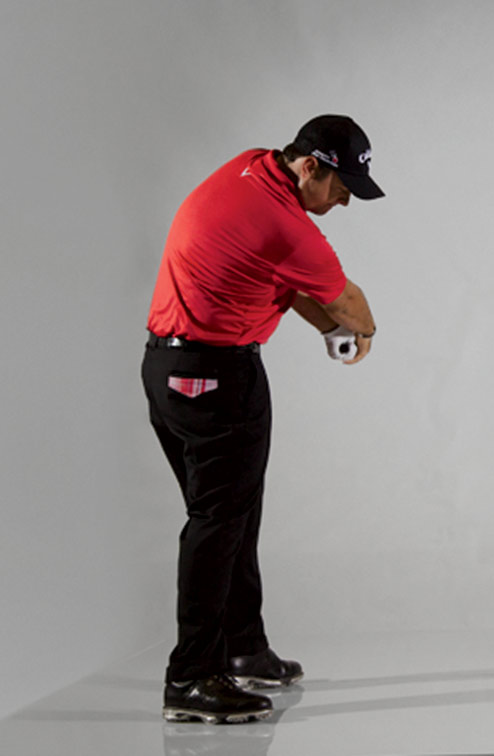
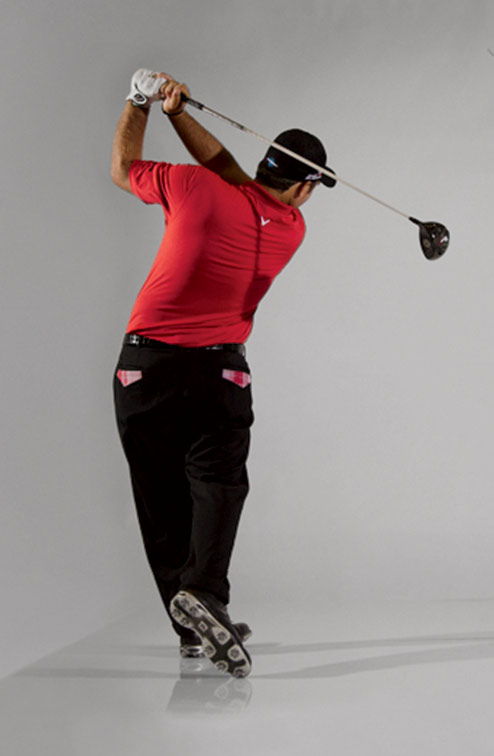
If there’s a bunker to carry, a dogleg to drive across or a par 5 to reach in two, I call on the High Bomb. It’s a towering shot designed to stay in the air as long as possible. I start by teeing the ball half an inch higher than normal and playing it a couple inches farther forward in my stance. I make a big, deliberate turn, being sure to set the club solidly at the top. Through impact, I swing up on the ball slightly, keeping my upper body back. Go ahead, swing as hard as you can while staying in balance. This is no time to wimp out!
The Butter Cut
Fit the Right Shot Into the Fairway
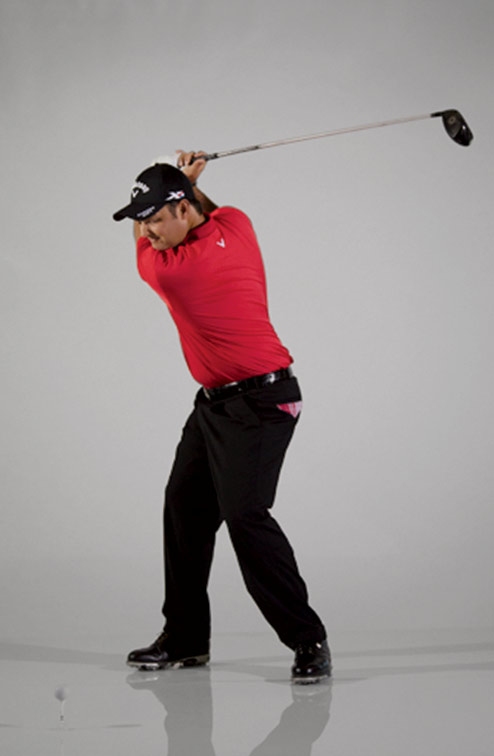
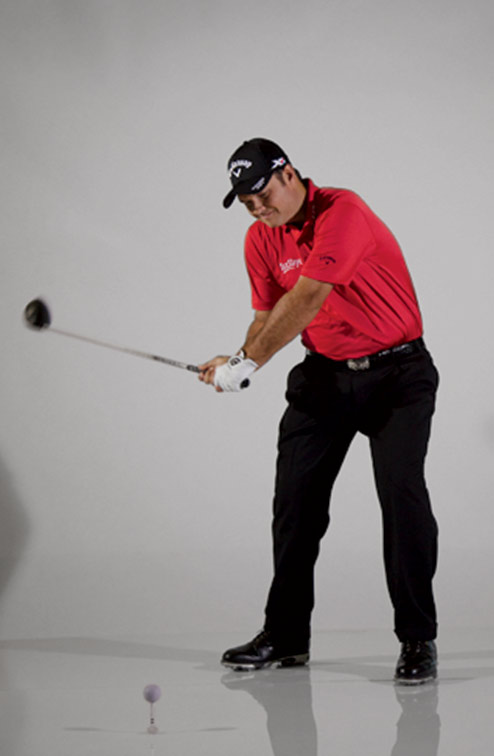
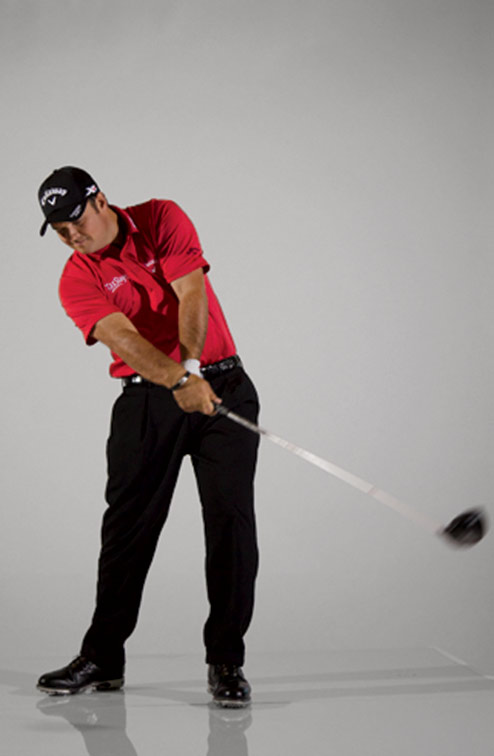
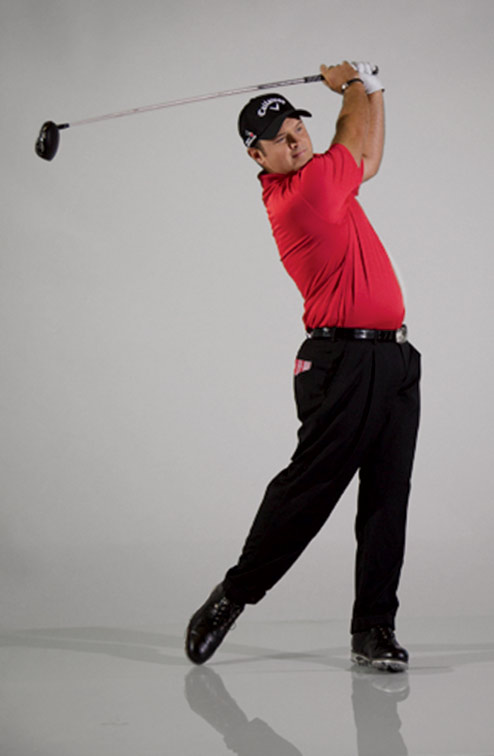
My natural shot is a draw, but when the fairway bends to the right and calls for a fade, I’ll go with the Butter Cut. I set up with my feet aligned well to the left but the clubface aimed at the target. My backswing is normal, but on the way down and through, I make sure the clubface doesn’t rotate closed. I try to hold off my finish so the face stays pointing towards the sky for as long as possible. Compare my position right after impact to the same frame for the Slinger, and you’ll see a big difference in my release.
The Mental Side
4 Driving Secrets to win your Matches
Strategically and psychologically, match play is different from stroke play, especially with the driver. Here are my four keys to driving in matches:
1. Put It In The Fairway
Even if it means sacrificing distance, you want the ball in play. Don’t try to keep up with longer opponents. If you’re first to hit from the fairway and find the green, you’ll add pressure.
2. Don’t Get Discouraged
Paired with Jordan Spieth at the 2014 Ryder Cup, I opened our first four-ball match with a popped-up tee shot that barely reached the fairway. But I hit a 3-iron onto the green, made par, and drove it well the rest of the way. Everyone hits a poor drive now and then, so hang in there.
3. Favour Your Go-To Shot
Although I like the Butter Cut, it’s not my normal shot. When the match is close, opt for the ball flight you can trust most.
4. Monitor Your Tempo
I’m sure you have a good idea of the swing tempo that works best for you. Keep it steady, and pay attention to it. That’ll help your swing hold up under the pressure of a tough match.
